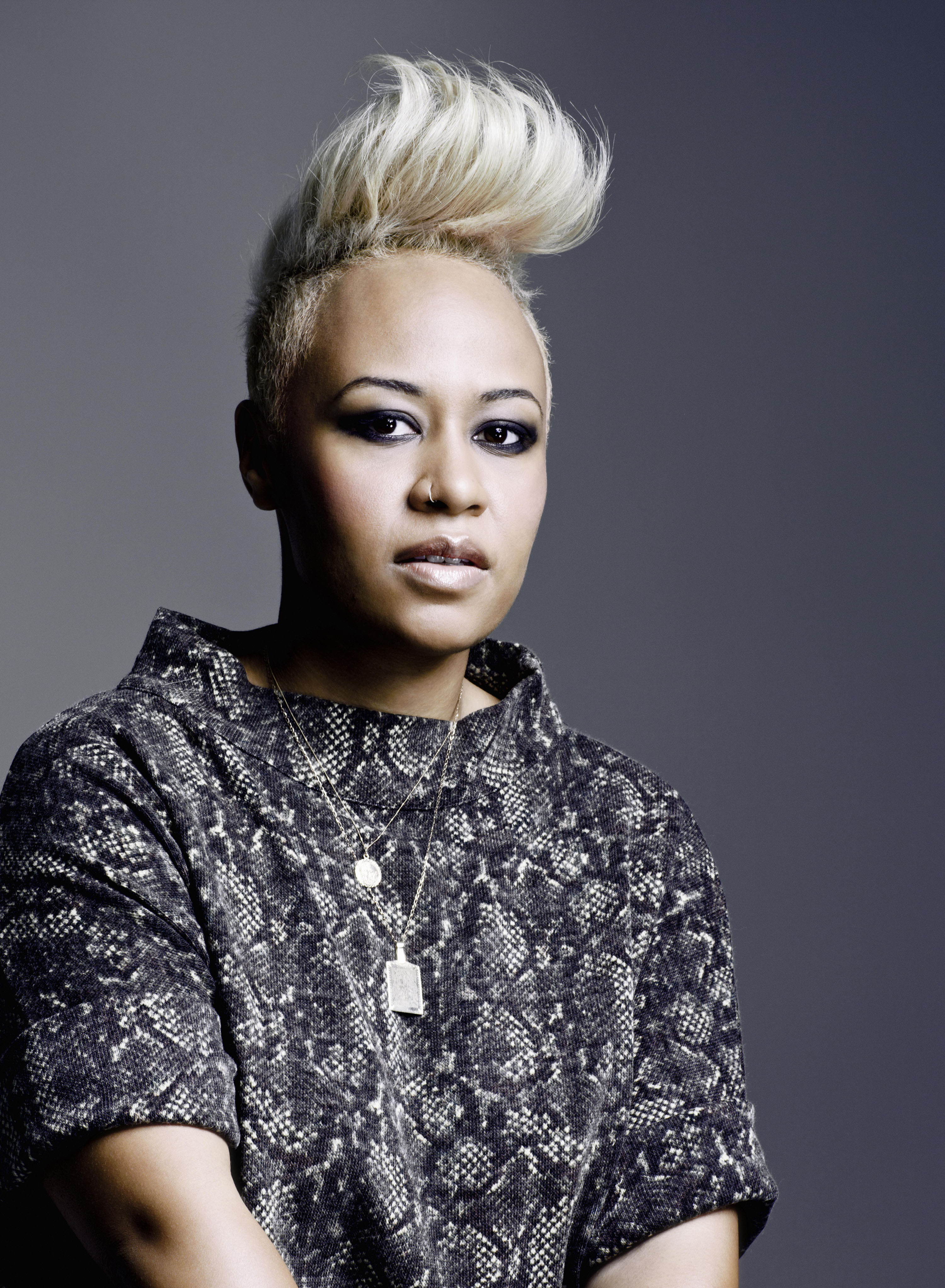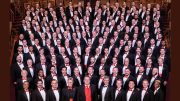By: Chris Azzopardi*/Special for TRT–
The rebirth of the big voice is about to get a new star: Emeli Sandé, a Scottish import who, naturally, is already adored by the gays. Sandé’s debut, featuring breakout hits “Heaven” and “Next to Me,” is a throwback to the days of the mere voice. No flash, no meat dress.
Touring with Coldplay over the summer, Sandé caught up with us to chat about connecting with her gay fans, comparisons to Adele (and having the same first name as the superstar), and performing at a gay club the night Whitney Houston died.
Chris Azzopardi: Are you feeling the gay love?
Emeli Sandé: Yeah, it’s been amazing to see so many people from the gay community coming to the shows.
Q: Why do you think they’re in love with you?
A: I’m not sure. What I do is a wee bit different. I want to speak for everybody. I come from a place where I was so different, and maybe people can relate to that in some way.
Q: Why did you feel like an outsider?
A: I grew up in a small village in Scotland and we were the only mixed-race family, and I felt very different. I really found a community within music, and I found my voice through music, so I definitely know how it feels to be the odd one out or to be the underdog. I needed to sing. It was more than just a hobby for me.
Q: What do you remember most from your performance at Heaven, a gay club in London?
A: I remember a lot from it. Whitney Houston just died five minutes before I went on stage, so it was a bizarre feeling because the club was called Heaven and I was singing “Heaven” and Whitney Houston had just died. It was such a bizarre night for me, but I really felt a real connection to the crowd there. I want to go back and enjoy it a bit more this next time.
Q: What’s been your relationship with gay men throughout your life? Did you know many in Scotland?
A: I knew quite a few gay people. I used to study medicine in Glasgow, and there are a lot of gay people in the chorus. I had a good time with them! (Laughs) We used to speak about Mariah Carey together. There’s also a really great art school in Glasgow. I love fashion and I love meeting new designers, and a lot of the students were gay. I always find them part of a creative community.
Q: Do you have a gay best friend?
A: I do, actually. He’s a doctor. We studied together, so he was my Mariah buddy and I speak to him about Leona Lewis and all the big singers. We would just speak forever about singing, and he comes to all my shows. He made T-shirts one time with my name and face on it. He’s a big fan.
Q: How do you feel about comparisons to other artists like Whitney, Beyoncé and Adele?
A: All these artists are incredible and they’re all so successful, so it feels nice that people are putting me in the same kind of census as these people. But everyone is so different. If you really listen to people’s music separately, we’re all coming from different places and we write differently and our careers are going in different paths. For me, it’s just really flattering; being a newcomer and having people draw those comparisons is fantastic.
Q: You chose your middle name, Emeli, as your stage name, because your first is actually Adele. Two Adeles can’t be a bad thing though, right?
A: It would have been hard to distinguish myself as an artist. It was three years ago, before I’d released anything promotionally, and then I heard her name and thought, “Oh, we can both have the same name.” And then she won the Critics’ Choice at the BRIT Awards and she did bigger and bigger things; she’s humungous. I think (the name change) is a good thing in retrospect.
Q: Is there pressure to be the next big thing?
A: Yeah, a wee bit. I feel pressure because no one’s done what Adele’s done in the past 20, 30 years; that level of success is a bit mind-blowing to me, but I love that people believe in me and in the music. I can really only take that as a positive. I never want to set a benchmark for myself against another artist. I’m on my own journey and I’ll see what happens.
Q: What music did you grow up listening to?
A: I loved the voices: Whitney, Mariah, Anita Baker – people who had these incredible voices. As I got a bit older, when I was 8 or 9, my dad introduced me to people like Nina Simone and Tracy Chapman, where it was more about the tone of the voice. I fell in love with Nina Simone as soon as I heard her, and she really inspired me to play an instrument and to write and to speak about what’s going on in the world around you.
Q: When did you decide to make music your career?
A: Really young. I definitely knew I wanted to be a singer, but I definitely knew that I wanted an education before I went into the music world, so I studied medicine always knowing I wanted to do music eventually.
Q: How did you come up with the title Our Version of Events?
A: I was staying with the producer that I worked with, we were having breakfast, and people were asking me what the title of the album is. Then we were being told you have to play by these rules in the industry, you have to do this, that and the other. He said, “Well, this is our version of events, so we’re gonna do it how we do it.” I loved that defiance. These were stories I wanted to tell; they were stories that we thought maybe other people would want told for them, to give a voice to people who might not feel represented on radio. It just sounded like the perfect title of the album. This is our version of events, and maybe I can speak for other people through my stories.
Q: What inspired the album?
A: Definitely relationships. Romantic relationships as well as just how people love one another. I really wanted to write songs like “Breaking the Law” because we’re in a society right now where there are a lot of rules, and I would hate for people to lose that human instinct, that courage, to just love somebody or really be there for somebody despite everything that tells them not to.
Q: Favorite song from the album?
A: “Clown.” For me, as I get older, it means something more. You have to try and risk being the clown if you want to be anything. If you play everything safe you’re never going to get there. I love “Clown” because it reminds me to really go for it.
Q: What are your songwriting must-haves?
A: I need some red wine – that’s definitely something I need. And it has to be after 10 o’ clock at night. Those are the two conditions. I need to be around people I can trust, people that I can just talk about stupid stuff with or get really deep, and there will be no judgment.
Q: Think back to the first song you wrote. What was it about?
A: That was when I was 8, and I don’t think you could call it songwriting, but it was about this alien that came from space and spread love and joy around the world. (Laughs) It was quite good.
Q: What can we expect from your set when you open for Coldplay? And what do you think of the band?
A: I’m a big fan of them. I did a lot of studying to their music, and lyrically and melodically they’re just amazing; it’s no surprise they’re so successful. I’m really honored to be opening up for them and working with them. But my set is going to be a lot fuller than the gigs we’re doing here at the moment, which are just really stripped back and acoustic. We’ll have the full band on stage. It’s introducing my music to people – stadiums full of Coldplay fans. I’m looking forward to it.
Q: What’s your idea of heaven?
A: There’d be a lot of music, but also everything would be very fair. There wouldn’t be the inequality we see in the world. Very fair and lots of melodies. And wine!
*Chris Azzopardi is the editor of Q Syndicate, the international LGBT wire service. Reach him via his website at www.chris-azzopardi.com.








